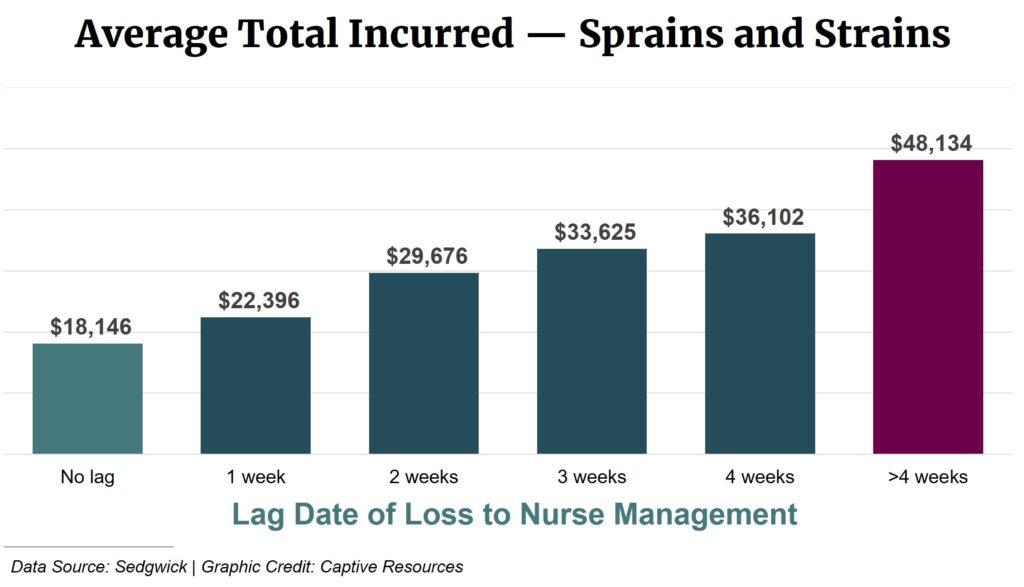Regardless of how seriously a company takes workplace safety, accidents and injuries are bound to happen from time to time. When complex injuries occur, injured employees often need the support of someone to explain medical procedures, help develop customized treatment plans and guide them through recovery. At the same time, companies often need an outside resource to provide quality control over the claims process and ensure the employee is receiving proper medical care.
The challenge is finding someone qualified to act as a helpful resource and steadfast advocate for employees and employers alike. As a solution to this challenge, many companies have turned to nurse case managers.
In a recent webinar I presented in connection with Captive Resources we answered common questions on the topic. Read on to learn more.
What is a nurse case manager?
When it comes to workers’ compensation claims, nurse case managers are charged with overseeing injured employees’ medical care while reducing the total cost of risk for employers. Nurse case management includes several key components like:
- Initiating contact with the referral source, injured worker, provider and employer (if approved by adjuster)
- Reviewing the injured worker’s medical records
- Developing a case management plan with clearly defined goals and barriers
- Addressing barriers with appropriate parties
- Coordinating and expediting medical treatment and procedures
- Locating the best medical care and physicians to treat the injury
- Ensuring injured employees can safely return to work
- Obtaining Maximum Medical Improvement (MMI)
- Posturing claim for closure
How can nurse case managers impact claims and reduce costs?
As an advocate for injured workers, it’s a nurse case manager’s job to make sure that patients receive treatment plans tailored to each individual’s specific condition and medical history. Providing this level of high-touch care ensures workers get the right treatment for them and that companies don’t have to pay for extraneous medical care. To accomplish this, nurse case managers handle functions like:
- Identifying non‐related conditions or treatments
- Avoiding unnecessary treatments, diagnostic procedures, vocational training, etc.
- Coordinating medical services to maximize treatments
- Negotiating rate reductions
- Lowering indemnity payments by obtaining work releases with clearly defined work restrictions or full duty releases
- Lowering case management fees by ensuring the correct level of case management for each specific claim
When is the right time to bring in a nurse case manager?
The best time to bring in a nurse case manager is as soon as possible for many injuries. Based on the numbers from the chart below, instances when companies brought in a case manager right away resulted in 165% lower costs than when the company waited a month or more. Yes, you might pay a little for the nurse now, but if the file gets closed at the earlier point rather than later one, you’ve made that money back.

What types of cases need a nurse case manager?
Unfortunately, there isn’t a single, simple answer to this question, although there are models to automate the process (more on that in a bit). Still, these signs may help you identify when to bring in a nurse case manager:
- Expectation of lost time
- Suspicious circumstances with the claim
- When the employee has additional medical conditions (i.e., comorbidities)
- Specialists referrals
- Cases with complex injuries
- Cases with multiple injuries or providers
- Specific claim issues like unexpected recovery times, termination of employee, etc.
- Difficult providers or claimants that impact return to work (RTW) or MMI
- Employer‐specific requests
- Catastrophic claims
Hands down, a person with catastrophic and complex issues — like someone who’s not healthy to begin with and has an injury on top of that — definitely needs a nurse case manager. In these cases, there are a lot of potential problems that can occur. You need someone to help them navigate.
How are nurse case managers usually assigned?
There are three main ways that nurse case managers are brought in to manage a workers’ compensation claim.
No. 1: Advocacy
Insurance adjusters often recommend bringing in a nurse case manager to help handle more complicated cases. Adjuster advocacy is the traditional method for bringing in nurse case managers.
No. 2: Clinical consultation/nurse triage
This method involves nurse triage services. In these cases, a triage nurse responding to a workplace injury identifies that the situation warrants bringing in a case manager.
No. 3: Predictive analytics
This method has grown in recent years as technology allows us to parse massive data sets to identify common trends. Companies like Sedgwick use predictive analytics to identify claims that could benefit from assigning a nurse case manager based on factors like:
- The patient’s age
- The patient’s specific diagnosis
- The location of the incident (different regions have higher likelihoods for lawsuits)
- The presence of any comorbidities which could complicate the case
This blog has been adapted from the original published by Captive Resources on September 17, 2020, and shared with permission.